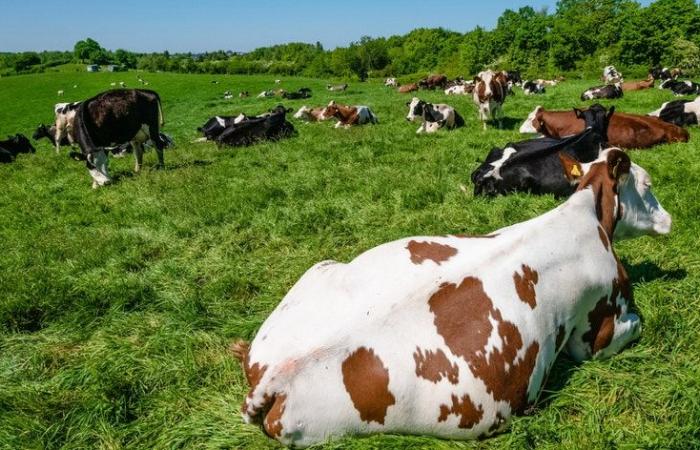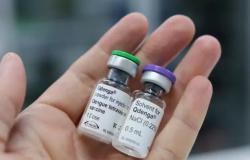“More than 80 percent of the European Union’s Common Agricultural Policy (CAP) supports emissions-intensive animal products” – this is the conclusion of the most recent study that analyzes the impact of agricultural subsidies on the European bloc’s food system.
CAP money “favors foods of animal origin, which use 82 percent of European Union agricultural subsidies, of which 38 percent directly and 44 percent for animal feed”, explains the analysis.This policy option is paying more to farms that occupy a larger area. Livestock take up more space than plants and are inefficiently fed crops that could have gone to people.
This management triggers “perverse results for a food transition”especially when there are plans to make Europe the first climate-neutral continent by 2050, explains the study.
“The vast majority of this amount goes to products that are pushing us to the limit”highlights Paul Behrens, environmental change researcher at Leiden University, in the Netherlands, and co-author of the document, in statements cited in the edition online from the British newspaper The Guardian.
To produce the same amount of protein, beef requires 20 times more land than nuts and 35 times more than grains.
It adds that “the same foods of animal origin are associated with 84 percent of the greenhouse gas emissions embodied in EU food production, while providing 35 percent of the EU’s calories and 65 percent of its proteins”.
“We are encouraging the worst case scenario,” says Behrens.
The calculations
To determine the sum of EU subsidies for animal products, researchers linked subsidy records to an academic database on food flows and tracked public money along the supply chain during 2013, the last for which there was supply data.
In the CAP, although it has been reformulated twice in the last ten years, the division of direct subsidies – before taking trade flows into account – has remained practically constant for foods of animal and vegetable origin.
It was then identified that 12 percent of the subsidies were embedded in products shipped outside the EU, mainly to upper-middle and high-income countries. “China consumed more EU agricultural subsidies than the Netherlands, while the US consumed more than Denmark”the study noted.
For those who were not involved in the study, such as Mario Díaz Esteban, an ecologist at the National Museum of Natural Sciences in Spain, these results are interpreted as “as solid and clear as they are devastating”.
Florian Freund, agricultural economist at the University of Braunschweig, reiterates that “The study illustrates that most subsidies do not support an urgently needed transition to healthy, sustainable diets.”
Other experts argue that caution must be taken regarding the value of estimated subsidies directed at products of animal origin. Alan Matthews, emeritus professor of European agricultural policy at Trinity College Dublin, argues that the research oversimplified the economic mechanisms at work because it was assumed that “subsidies were fully reflected in prices”, which is “far from the case”.
Green policies versus farmers’ fury
In the CAP reform for 2023-27, the EU decided to allocate a quarter of direct payments to “ecological schemes”, which implies incentives aimed at “environmentally friendly” cultivation. This change was introduced because livestock farming is reported to cause the majority of deaths in the wild across the planet and is responsible for 12 to 20 percent of the pollutants that warm the Earth.
However, the new strategy of introducing several green policies was not well received by farmerswhich triggered a wave of demonstrations across Europe.
This study comes at a time when eight countries have just withdrawn their support for legislation that would help restore nature and EU member states have agreed to delay some of the obligations that farmers must meet to receive subsidies.






